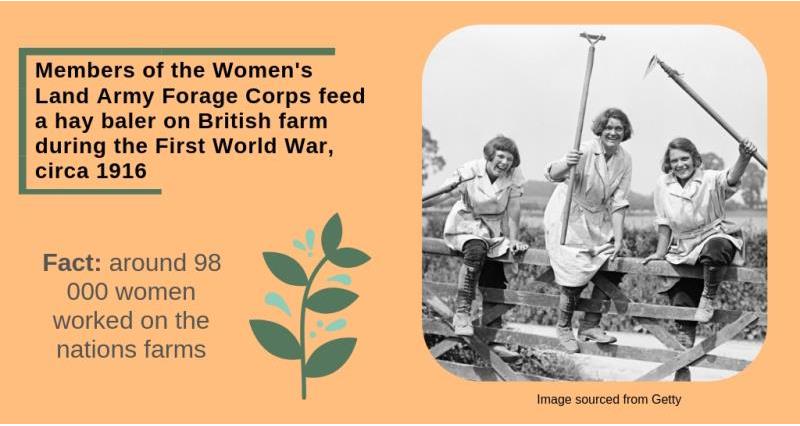This led to other industries becoming more available to women for the first time, too – including police, engineering and the railways. It also acted as a catalyst for greater equality, with the vote finally extended to women over 30 years of age in 1918.
The Great War is often seen as a turning point in the role of women in British society. However, when the war ended, the majority did not keep their wartime jobs. The Restoration of Pre-War Practices Act meant that returning soldiers were given their jobs back, with women often returning to the home or domestic service.
The WI, meanwhile, started in 1915 to encourage women to get involved in growing and preserving food to help increase the supply of produce to the war-torn nation. The first branch opened on Anglesey, North Wales, in September 1915 and by the end of the war there were 199 WI groups and seven county federations.
Once the war was over, these newly-formed WIs began to concentrate on planning programmes of activities to suit their members, who came from a wide range of social positions. Working together, the WI helped to break down the social barriers between countrywomen who had rarely met in the past and gave them access to new leisure pursuits and hobbies and, for many, the chance to become active citizens, campaigning on issues that mattered to them.
More about the impact of World War One on farming:
Farming and the First World War homepage
Farming and the First World War: The role of stately homes
Farming and the First World War: Changes in democracy
Farming and the First World War: Mechanisation and the workhorses of war
Farming and the First World War: Food supply
Farming and the First World War: The humble pea
Farming and the First World War: The Women's Land Army
Farming and the First World War: The blind farmer
The Few That Fed The Many: Special publication on the role farming played during World War One?
